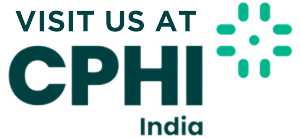Schedule M Guidelines 2024

Deepak Yadav
18/01/24
Government Issues Revised Schedule M Guidelines to Strengthen Pharma Manufacturing Standards
The Union Health Ministry has recently announced ground-breaking revisions to the Schedule M guidelines, introducing significant measures that will transform the landscape of pharmaceutical manufacturing in the country. These revisions, effective from December 28, mandate pharmaceutical companies to adopt stringent reporting procedures for drug recalls, product defects, deterioration, or faulty production—a critical enhancement aimed at ensuring the safety and quality of pharmaceutical products.
Key Points:
1. Mandatory Reporting:
Pharmaceutical companies are now required to promptly inform the licensing authority about drug recalls and report any product defects, deterioration, or faulty production. This addresses a critical gap in the previous regulations, ensuring a transparent and accountable approach in the industry.
2. Focus on Good Manufacturing Practices (GMP):
The revised guidelines emphasize the manufacturer's responsibility for ensuring product quality aligns with its intended use and complies with licensing requirements. The introduction of GMP standards aims to bring a higher level of control over materials, methods, personnel, and facilities in the manufacturing process.
3. Stability Testing and Global Standards:
Stability testing of drug substances, in adherence to recommended climate conditions, is now mandatory to meet global standards, particularly those set by the World Health Organization (WHO). This move is aimed at elevating Micro, Small & Medium Enterprises (MSMEs) to international standards, ensuring the production of globally acceptable drug quality.
4. Pharmaceutical Quality System:
The introduction of a Pharmaceutical Quality System, Quality Risk Management, and Product Quality Review addresses documentation deficiencies, failure investigations, and personnel qualifications. These changes contribute to fostering robust quality management systems in pharmaceutical manufacturing.
5. Pharmacovigilance System:
The guidelines emphasize the need for a pharmacovigilance system to collect, process, and forward reports on adverse drug reactions emerging from the use of drugs manufactured or marketed by licensees. This proactive measure ensures continuous monitoring and reporting of potential risks associated with pharmaceutical products.
6. Transition Period:
To facilitate a seamless transition, a grace period of six and 12 months is granted for large manufacturers and MSMEs, respectively. This allows companies to adapt to the new guidelines without compromising their ongoing operations.
Vibcare Healthcare welcomes the Revised Schedule M guidelines, foreseeing a positive impact on the industry. The changes signify a commitment to global quality standards, fostering the production of safer and more effective medicines worldwide.
In conclusion, the Revised Schedule M guidelines mark a significant step forward in strengthening pharmaceutical manufacturing standards in India. The focus on transparency, GMP, and global compliance reflects the government's commitment to ensuring the highest quality and safety standards in the pharmaceutical sector.

Copy Link






